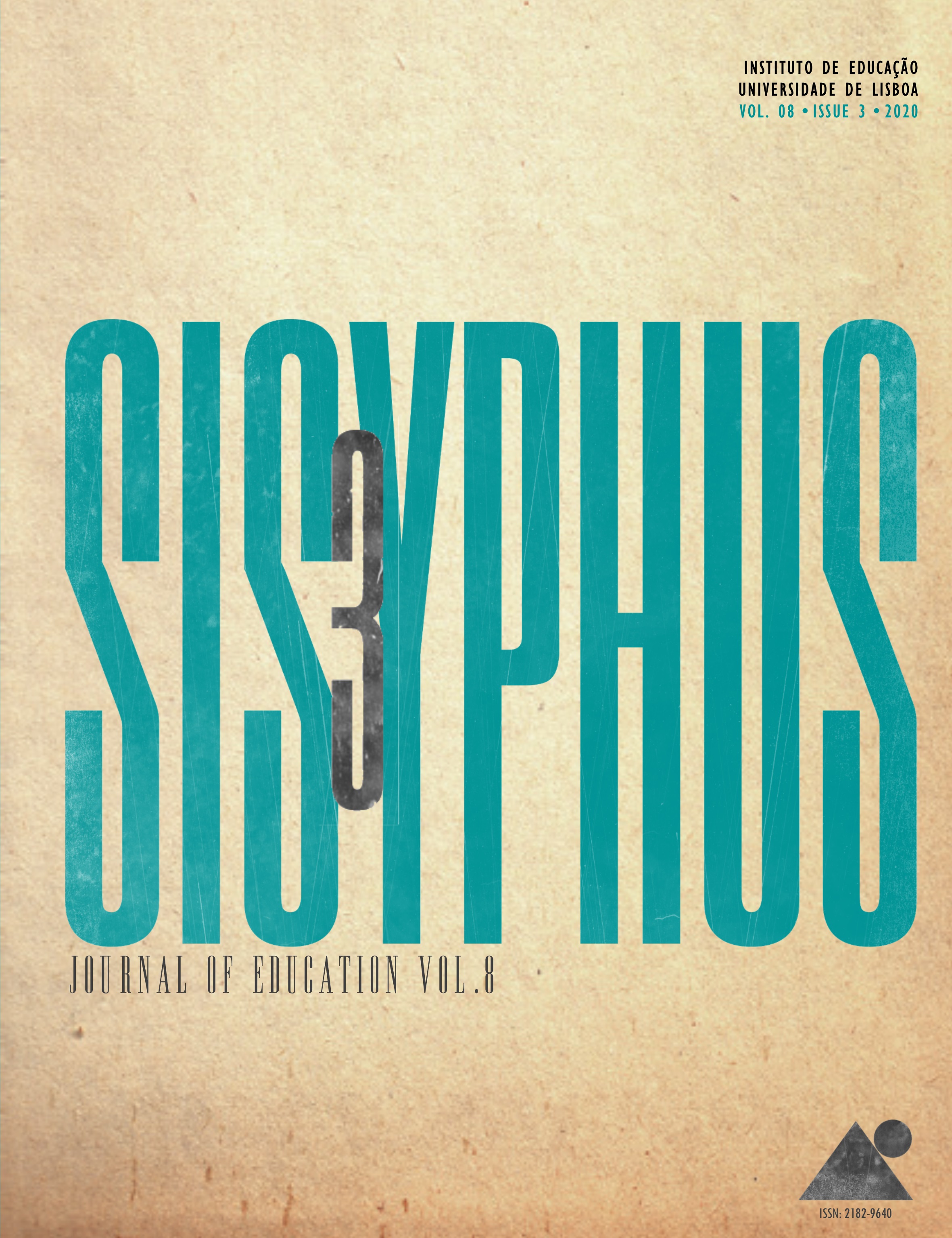Liberation as Dependence
Reconceptualizing Emancipatory Education in the New Climatic Regime
DOI:
https://doi.org/10.25749/sis.20107Keywords:
Latour, emancipation, Freire, climate change, politicsAbstract
Bruno Latour argues that we are currently living in a New Climatic Regime, where binary oppositions like Nature/Culture and Subject/Object prevent the development of modes of politics capable of collective action. The New Climatic Regime requires the reconstruction of human relations with the more-than-human world, including the contemporary politics of education, which mostly developed in response to problems lumped under the category of ‘the social.’ Here, scholars have asked how education might play a role in emancipating individuals and groups from oppressive social forces. However, climate change is a different type of political problem, and one where the logic of emancipation appears to break down. This paper puts Latour’s thinking in conversation with Freire’s praxes of liberatory education to inquire into the role emancipatory education might play in engendering collective action towards climate change and other problems of the present.
Downloads
References
BIESTA, G. (2008). Toward a new “logic” of emancipation: Foucault and Rancière. Philosophy of Education, 169-177.
BIESTA, G. (2010). A new logic of emancipation: The methodology of Jacques Rancière. Educational Theory, 60, 39-59.
BLASER, M., & CADENA, M. (2018). Introduction: Pluriverse - proposals for a world of many worlds. In M. CADENA & M. BLASER (Eds.), A world of many worlds (pp. 1-21). Durham, N.C. and London: Duke University Press.
CADENA, M., & BLASER, M. (Eds.) (2018). A world of many worlds. Durham, N.C. and London: Duke University Press.
CHARBONNIER, P., SALMON, G., & SKAFISH, P. (Eds.) (2017). Comparative metaphysics: Ontology after anthropology. London, UK: Rowman & Littlefield International.
COLAPIETRO, V. (2011). Situation, meaning, and improvisation: An aesthetics of existence in Dewey and Foucault. Foucault Studies, 11, 20-40.
CHAKRABARTY, D. (2009). The climate of history: Four theses. Critical Inquiry, 35(2), 197-222.
DEBAISE, D. (2017). Nature as event: The lure of the possible. Durham, N.C. and London: Duke University Press.
Freire, P. (2012). Pedagogy of the oppressed. (30th anniversary edition). New York: Bloomsbury.
GRANDE, S. (2004). Red pedagogy: Native American social and political thought. Lanham, MD: Rowman & Littlefield Publishers.
HARAWAY, D. (2016). Staying with the trouble: Making kin in the Chthulucene. Durham, N.C. and London: Duke University Press.
LATOUR, B. (1987). Science in action: How to follow scientists and engineers through society. Cambridge, Mass.: Harvard University Press.
LATOUR, B. (1991). We have never been modern. Cambridge: Harvard University Press.
LATOUR, B. (2004). Politics of nature: How to bring the sciences into democracy. Cambridge, MA: Harvard University Press.
LATOUR, B. (2005). Reassembling the social: An introduction to actor-network-theory. Oxford and New York: Oxford University Press.
LATOUR, B. (2013). An inquiry into modes of existence: An anthropology of the moderns. Cambridge, MA: Harvard University Press.
LATOUR, B. (2017). Facing Gaia: Eight lectures on the new climatic regime. Cambridge, UK: Polity Press.
LATOUR, B. (2018). Down to earth: Politics in the new climatic regime. Cambridge, UK: Polity Press.
LATOUR, B., & LENTON, T. M. (2019). Extending the domain of freedom, or why Gaia is so hard to understand. Critical Inquiry, 45(3), 659-680.
REITER, B. (Ed.) (2018). Constructing the pluriverse: The geopolitics of knowledge. Durham, N.C. and London: Duke University Press.
SIEGEL, H. (1985). Educating reason: Critical thinking, informal logic, and the philosophy of education. Part two: Philosophical questions underlying education for critical thinking. Philosophy Articles and Papers, paper 14.
STOUT, R. (2005). Action. Montreal & Kingston: McGill-Queen’s University Press.
WALSH, C. E., & MIGNOLO, W. D. (2018). Introduction. In W. D. MIGNOLO & C. E. WALSH, On decoloniality: Concepts, analytics, praxis (pp. 1-12) Durham, N.C. and London: Duke University Press.
WYNTER, S. (2003). Unsettling the Coloniality of Being/Power/Truth/Freedom: Towards the Human, After Man, Its Overrepresentation—An Argument. CR: The New Centennial Review, 3(3), 257-337.
WYNTER, S., & MCKITTRICK, K. (2015). Unparalleled catastrophe for our species? Or, to give humanness a different future: conversations. In K. MCKITTRICK & S. WYNTER, On being human as praxis (pp. 9-89). Durham, N.C. and London: Duke University Press.
Downloads
Published
Issue
Section
License
Copyright (c) belongs to Sisyphus - Journal of Education. However, we encourage issued articles to be published elsewhere, provided that Sisyphus authorization is asked for and that authors integrate our original source citation and a link to our website.
Author Self-Archiving Policy
Author(s) are permitted to self-archive the final published version in institutional or thematic repositories, and in their personal or institutional websites.
DORA Signer
The Instituto de Educação da Universidade de Lisboa, Sisyphus' Publisher, is a San Francisco Declaration on Research Assessment signer.






